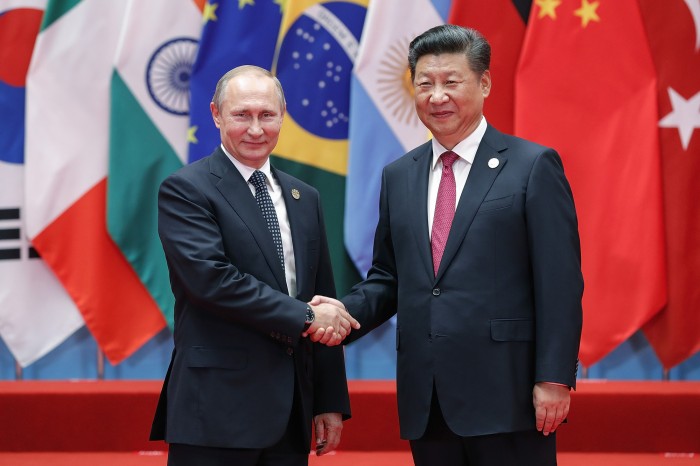Russia Turns to China for Help Building Its Own “Great Firewall” of Censorship

Russia wants to step up its ability to censor the Internet, and it’s turning to China for help.
China’s “Great Firewall” is the envy of the Putin regime, which has long feared that the rise of online political activism could loosen its grip on power. The government has spent years building a system for filtering the country’s Internet—but it is incomplete, and many U.S.-based Internet companies have thumbed their nose at the Kremlin’s rules.
That’s now changing. In June, the Russian government passed a series of measures known as Yarovaya’s laws that require local telecom companies to store all users’ data for six months, and hang on to metadata for three years. And if the authorities ask, companies must provide keys to unlock encrypted communications. Human rights watchdog groups were aghast at the measure. Edward Snowden, who is holed up in Russia, called the package the “Big Brother law.”
There has been some skepticism as to whether such laws would—or even could—be enforced. In the past, Putin has gone so far as to say the Russian government doesn’t have the authority to block websites—and even if it did, some have argued it doesn’t have the technical ability to do so.
But earlier this month Roskomnadzor, Russia’s communications regulator, blocked all public access to LinkedIn, arguing that it violated a 2015 law that requires Internet companies to store users’ personal data on servers located in Russia.
What’s more, it is now clear that Russia has been working with authorities in charge of censoring the Internet in China to import some aspects of the “Great Firewall” that have made it so successful. According to the Guardian, the two countries have been in close talks for some time, and the Chinese digital equipment maker Huawei has been enlisted to help Russian telecom companies build the capacity necessary to comply with Yarovaya’s laws.
Whether such moves represent politically motivated censorship or a broader attempt to bring foreign Internet firms in line with Russia’s sense of “digital sovereignty” is unclear. And in some ways, it doesn’t matter—they’re two sides of the same coin. Putin and his lieutenants are clearly trying to exercise more control over the digital lives of Russian citizens. Something that, interestingly enough, there is broad public support for in the country.
(Read more: The Guardian, The Washington Post, The Economist, Reuters, “Wikileaks E-Mails Are an Election Influence to Really Worry About”)
Keep Reading
Most Popular
Large language models can do jaw-dropping things. But nobody knows exactly why.
And that's a problem. Figuring it out is one of the biggest scientific puzzles of our time and a crucial step towards controlling more powerful future models.
The problem with plug-in hybrids? Their drivers.
Plug-in hybrids are often sold as a transition to EVs, but new data from Europe shows we’re still underestimating the emissions they produce.
Google DeepMind’s new generative model makes Super Mario–like games from scratch
Genie learns how to control games by watching hours and hours of video. It could help train next-gen robots too.
How scientists traced a mysterious covid case back to six toilets
When wastewater surveillance turns into a hunt for a single infected individual, the ethics get tricky.
Stay connected
Get the latest updates from
MIT Technology Review
Discover special offers, top stories, upcoming events, and more.